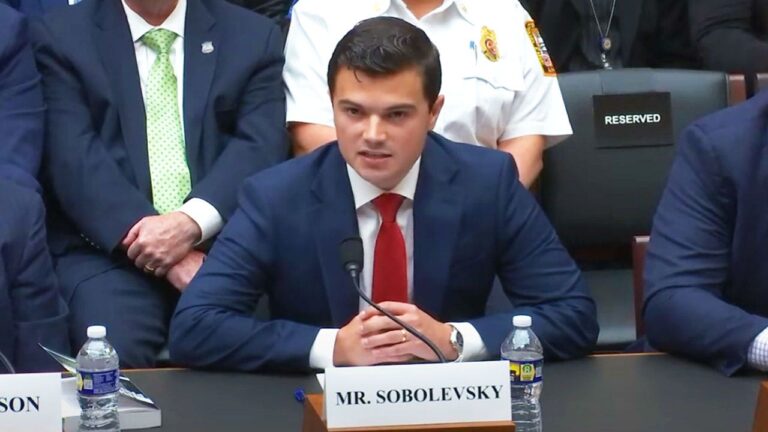Man Robbed at Gunpoint in D.C. Speaks Out
A chilling account of a robbery in the nation’s capital emerged as Mitchell Sobolevsky addressed the House Judiciary Subcommittee on Crime and Federal Government Surveillance. Sobolevsky shared how he was robbed at gunpoint on the streets of Washington, D.C., and argued that lenient sentencing and crime policies contributed to this terrifying incident.
Sobolevsky recounted the events of December 2020 when he was on a short walk to buy groceries near the White House. He noticed a man behaving suspiciously, but he brushed it off, assuming safety in the busy street. However, as he headed toward the store, he realized the man was following him closely.
Soon after, Sobolevsky realized that the couple who had been walking behind him had disappeared. The stranger was now beside him, requesting money. Politely declining, Sobolevsky continued walking, unaware that the man had drawn a gun and was now aiming it at him.
In a surreal moment, Sobolevsky found himself facing a life-threatening situation. The armed man told him, “Do what I say, and you ain’t gonna die tonight.” It was a harrowing encounter with someone who seemed devoid of empathy, a brush with pure evil.
The assailant demanded his belongings, all while keeping the gun pointed at Sobolevsky’s head. The ordeal concluded with the chilling words, “All right, you did good tonight. You ain’t gonna die.”
After the robbery, Sobolevsky managed to retain his phone and promptly called the police, feeling immense relief when he saw the approaching sirens. A female officer quickly arrived, assuring him of his safety.
The criminal responsible for this terrifying experience was eventually brought to trial. Sobolevsky pleaded for a just sentence, fearing the individual would commit further crimes. However, the judge handed down a lenient sentence of 24 months, suspending one year of it, believing the criminal’s judgment was still forming.
Tragically, within weeks of his release, the same criminal committed two more armed robberies. Sobolevsky only learned of this through local arrest reports.
Sobolevsky acknowledged that eradicating crime entirely is impossible, but he called on officials to take action to reduce its frequency. In recent years, Washington, D.C., has seen a surge in crime, with a significant rise in homicides and other offenses.
In the face of this escalating problem, federal prosecutors have declined to prosecute a substantial number of cases that would have traditionally gone to trial in D.C. Superior Court. To address the issue, Congress overturned a lenient criminal code and implemented a public safety bill, increasing penalties for specific offenses and enabling judges to detain violent crime suspects before trial.
As Sobolevsky’s story reminds us, confronting the complex issue of crime demands a balanced approach, combining accountability and prevention to ensure the safety of residents in the nation’s capital.

